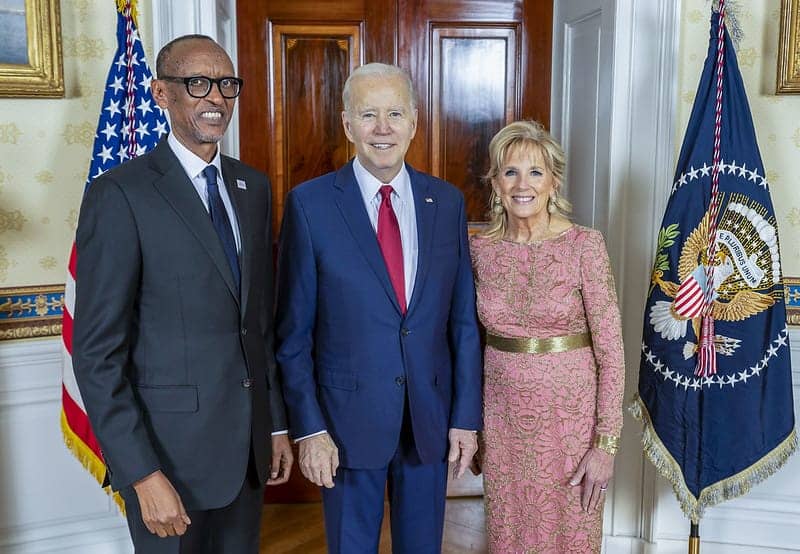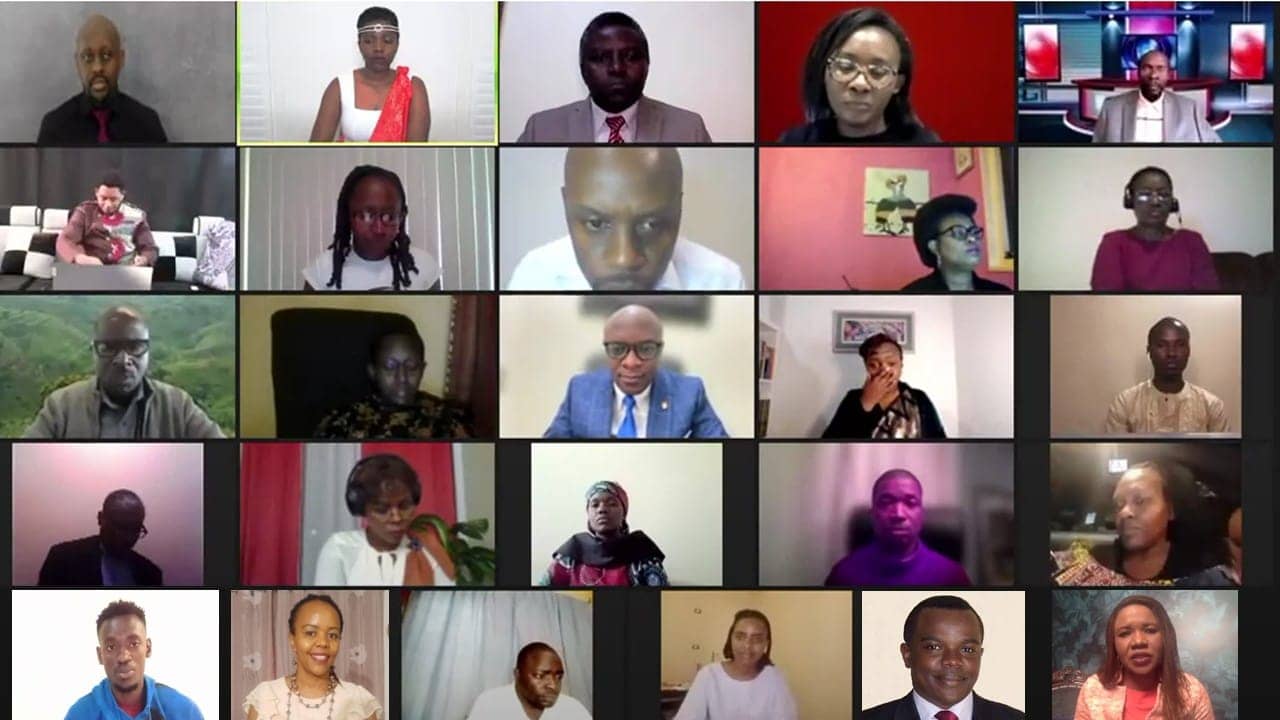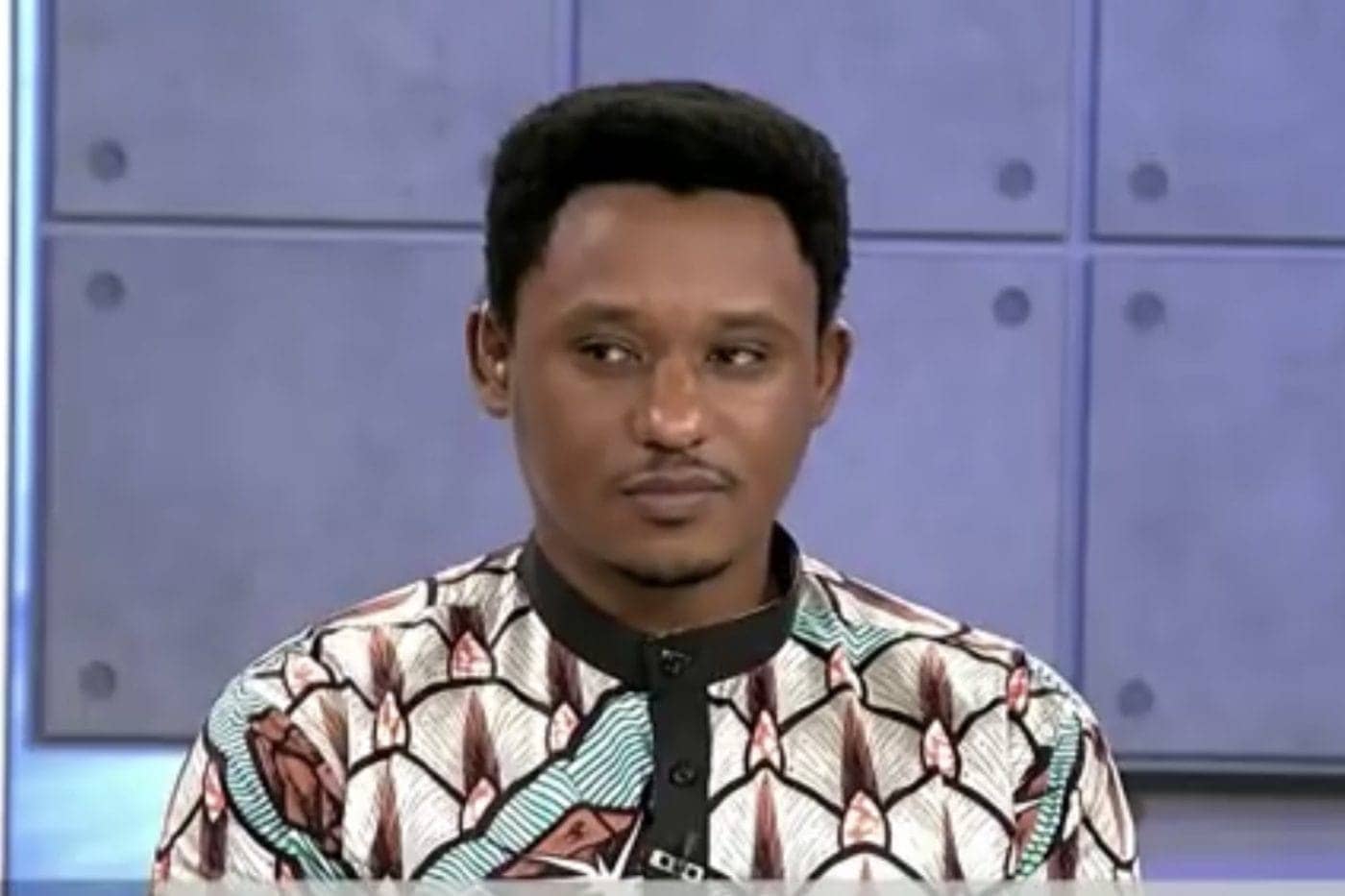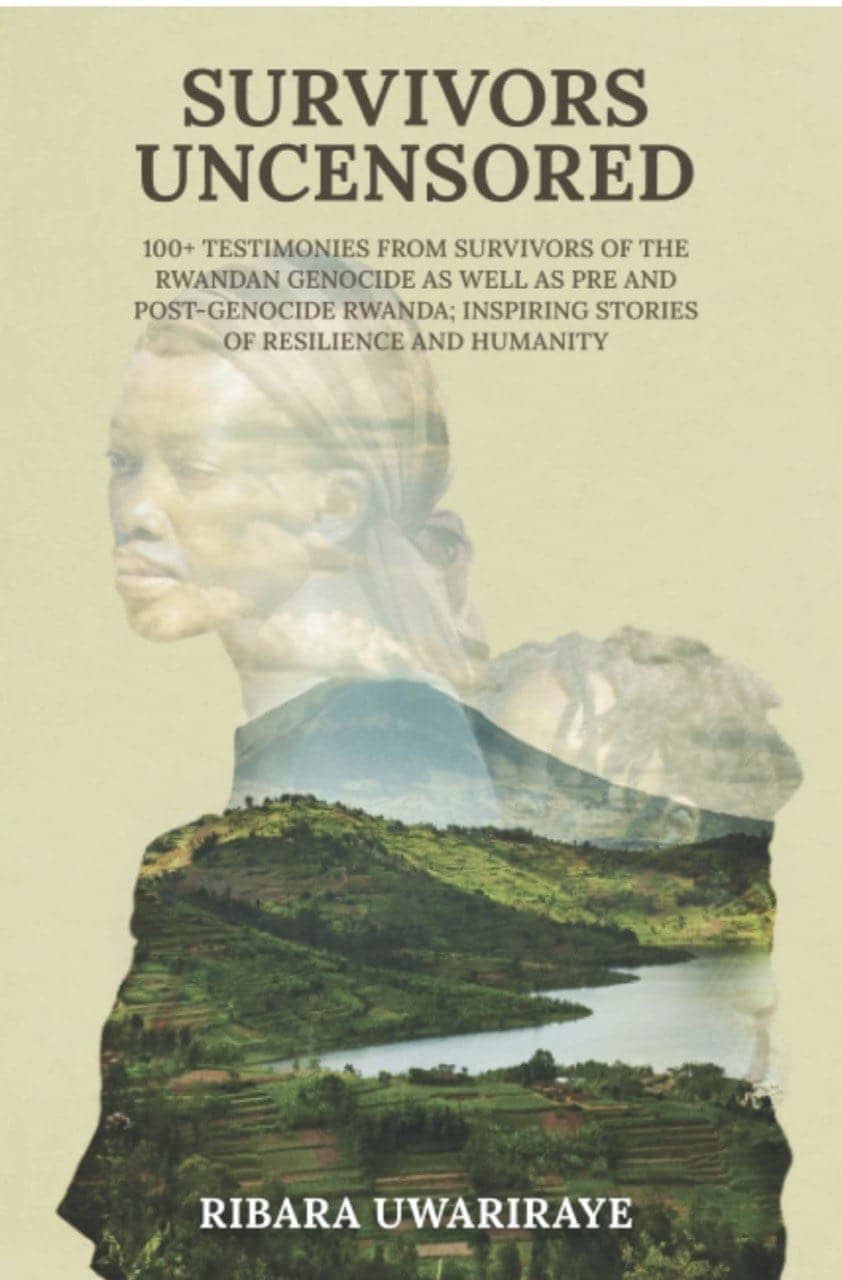
Western funded genocide in resource-rich central Africa is far from over
by Minister of Information JR Valrey, Oakland Bureau Chief
“Survivors Uncensored,” authored by a collective of writers known as Ribara Uwariraye from all continents except Antartica, discusses the seldomly talked about ‘94 Rwandan Genocide and human rights atrocities committed by the Rwandan and Western governments before, during and after the genocide, leading up to today.
With the famed Rwandan Paul Rusesabagina, known for his story depicted in the Oscar-nominated film “Hotel Rwanda,” having been kidnapped from San Antonio, Texas, convicted of terrorism in Rwanda and sentenced to 25 years of captivity and torture last year after calling for regime change, the politics of current-day Rwanda’s Kagame regime is a glaring example of why the world needs to take notice of what is happening in the country and divest and boycott until there is regime change.
While political prisoner Paul Rusesabagina was played in the film by veteran Hollywood actor Don Cheadle, the million plus other victims of the Rwandan and Congolese genocide have been utterly silenced by mainstream media, because Western interests depend on the stability of the criminal Kagame regime to provide coltan and cobalt to electronics manufacturers in the western world well below market prices.
The government of Rwanda uses all possible means to silence any voices that want to tell the whole story including much of the censored inconvenient truth.
For over a decade, I have known genocide survivor Claude Gatebuke as a Rwandan voice on the frontlines internationally, informing the world about what happened before and during the genocide, as well as what is going on today on the ground in Rwanda. He is also one of the co-writers of “Survivors Uncensored,” and I want our readers to be informed on where these western manufacturers are getting the minerals to make the electronics, that we “love” in the so-called developed world, and the cost to the people – Black people in Rwanda, the Congo and Uganda.
JR Valrey: What made you want to create a book? What is it about?
Claude Gatebuke: The book is a collection of short essays from Rwandans and non-Rwandans who were affected by the war and genocide in Rwanda. It includes over 100 authentic testimonies of survivors and witnesses of atrocities committed in Rwanda before, during and after the genocide in 1994 including today.
There are a variety of inspirational stories of resilience from near death experiences where some of the survivors survived death by bombs, bullets and hand weapons such as machetes, gardening hoes, clubs or being buried alive. There are stories of the current Rwandan regime using false witnesses to ensure convictions of people they want to imprison. There are also stories of arbitrary imprisonment, sex corruption, kidnappings, enforced dissappearances, families separating or losing people along their journeys of survival.
Most importantly, the book shows the resilience and resolve by the survivors in the book to fight and create an environment where the types of atrocities they survived will never be repeated. It is both therapy and restorative justice that paves the way for eventually holding the perpetrators of those atrocities accountable.
The area covered for the most part includes the countries of Rwanda and Congo. However, some of the stories also cover kidnappings from the US, and other parts of the world such as Burundi and Uganda. The survivors who submitted their stories for the book can be found on every continent except for Antarctica.
Our co-authors, Constance Mutimukeye, David Ndayambaje, Delphine Yandamutso, Eric Ngoga, Oscar Nyangoga, Rugaba Patrick Nsengiyumva and Urujeni Genty are also located on multiple continents including Africa, Australia, Europe and North America. It was published under the group’s platform name, Ribara Uwariraye. Ribara Uwariraye means “only the person who has lived through the night can best recount what they encountered that night.” In other words, we own and tell our own stories in their full authenticity.
The reason we wrote the book was to make sure that the experiences we lived are not swallowed up in the official narrative of the Rwandan genocide or bastardized by mainstream media, which only recognizes a portion of the stories included in our book. The government of Rwanda uses all possible means to silence any voices that want to tell the whole story including much of the censored inconvenient truth. We wanted to make sure that all truth is made public in writing even if it is inconvenient.
It was also part of healing the community by making sure their stories live forever and our loved ones lost in the wars, genocides and other atrocities are never forgotten. We stated that THE WORLD MUST KNOW what really happened. The idea came from one of our co-authors Eric Ngoga.
We also wanted to make sure that future generations have access to this information especially since the Rwandan government invests so much energy and resources into silencing stories that deviate from the official narrative. The official narrative is crafted in a way that presents Rwanda’s president Paul Kagame and his party the RPF as heroes of the genocide when they are in fact some of the perpetrators in the war, genocide in Rwanda, genocide in Congo and subsequent atrocities.
JR Valrey: How have survivors of the Rwandan genocide responded to the book?
Claude Gatebuke: Survivors of the Rwandan genocide have welcomed the book. In fact, there is a long waiting list of survivors who would like to be included in future editions of this book. Many are grateful that their stories were written in their authenticity. Those who did not get an opportunity to have their stories included in the book have also expressed the sentiment that the book has provided them with a voice and represented their lived experiences authentically, without conforming to the official narrative.
There are however some survivors who want to maintain the official narrative of the Rwandan government who were not pleased by the book. These are generally the ethnic extremists and supremacists within the larger Rwandan survivors community or supporters of the RPF regime and Paul Kagame.
Kagame serves as the local mercenary who is willing to kill his people and his neighbors in order to maintain favors with the West.
One of the examples that I saw was someone complaining that we published a book that talks about the RPF killing Hutu people. This was not a surprise, as it came from an RPF supporter and an extremist who has shown over the years a hatred for Hutu people. In the view of these extremists and regime supporters, some survivors such as Hutus or Tutsis and Twas killed by the RPF should never be spoken about in public.
JR Valrey: Rwanda is being marketed in the US as a socially and politically progressive place, although Kagame, who initiated the genocide, is still in power. What are your thoughts on this?
Claude Gatebuke: It’s terrible that the US continues to support financially, militarily, diplomatically and politically, a regime that has committed genocidal atrocities over the last 30 years. To justify the support, the US touts Kagame, his regime and his RPF party as progressive socially and politically – yet every year, the State Department releases reports showing human rights violations and atrocities committed by the regime.
I am not surprised by such hypocrisy though. The US is notorious for supporting friendly tyrants as long as they are useful tools to US interests abroad. Kagame, the initiator of the genocides we wrote about in our book “Survivors Uncensored,” is currently a useful tool to the US, the UK and EU. He serves as the local mercenary who is willing to kill his people and his neighbors in order to maintain favors with the West.
Kagame’s military has been used in missions in places such as Darfur, Haiti, Mali, the Central African Republic, Mozambique and Congo, among others. Until they decide to discard him, the US will continue to promote him as a great leader on the African continent, but the truth is far from this. Our drive to eventually obtain justice for these atrocities will not be deterred by the US or any Western support for Kagame.
JR Valrey: I know that Kagame’s regime is notorious for trying to silence Rwandan detractors. Has there been any backlash since the publishing of this book?
Claude Gatebuke: Yes, since day one. The notorious Kagame trolls have been busy harassing me, our co-authors and survivors in the book online. They also harass anyone that gives us a platform and allows us to talk about the book or to discuss our lived experiences. The regime has also harassed families of the survivors in the book.

However, we went to great lengths to ensure we kept everyone who submitted a story from inside Rwanda safe by using pseudonyms instead of real names and leaving out any information the regime may use to track them. For me particularly, less than a week ago, an agent of the Kagame regime that I know sent me a death threat stating that they can make me “vanish.”
JR Valrey: What do you want people to get out of reading it?
Claude Gatebuke: We want the world to know what we survived, and to be inspired by our resilience. For the American public in particular, we would like them to see the type of regime and genocidal ally the US has in Kagame. The stories in the book speak for themselves. We also want the audience to challenge their leaders to stop supporting such regimes.
JR Valrey: Who else contributed to the writing of this book? What did they contribute, and why did you feel they were essential to the project?
Claude Gatebuke: Besides the known authors, we have contributors who cannot be disclosed at this time due to safety concerns since they are in Rwanda. They helped with collecting stories, writing stories, translation and fact checking.
We also had editors in both English and French as well as designers and reviewers. We are grateful for all of them. The book is in both English and French. The English title is “Survivors Uncensored” and the French title is “Survivre Par La Parole.”
JR Valrey: Does the book go into how Ugandan and Rwandan militias have been consistently raiding the resources of the Congo for decades for western interest?
Claude Gatebuke: The book goes into details of what the survivors survived, which includes Rwandan and Ugandan militias raiding the Congo and committing horrible atrocities. But one of the missed opportunities was specifically calling out the relationship between Rwanda and Uganda and their western allies.
Rwanda has a so-called election in 2024 and Kagame will run and repress or imprison any legitimate opposition if he does not kill them.
A number of stories talk about some of these things such as story number 72, by William Adams Twayigize, about western NGOs’ complicity in the killings of people in Congo. Our introduction also touches on the role of the West but not extensive enough. Our future versions of the book will put more emphasis on this.
JR Valrey: Does current-day Rwanda still wear the scars of the genocide? How was the society rebuilt after a monstrous atrocity like the genocidal murder of 1 million Rwandans? How are relations between Hutus and Tutsis?
Claude Gatebuke: The book shows clearly that Rwanda still wears the scars of the genocide and that people have not healed mostly because the regime has refused to allow space to heal and has instead used the genocide as a tool of repression against Rwandans and blackmail against the rest of the world. Until people are able to openly and publicly tell their stories without suffering the consequences of telling the truth in a country where the regime is built on lies, these scars and wounds will remain open.
The relations between Hutus and Tutsis have always been good. The book itself illustrates that from various perspectives. The issue is those who are power hungry, like the RPF and Kagame, that use ethnicity as a way to rally people to their causes. As for the ordinary people themselves, ethnicity is not an issue for them except for the extremists and supremacists among those ethnicities. Those continue to align ethnically for self-centered ends while stepping on the others.
JR Valrey: Where do you see Rwanda, as well as those from the Rwandan diaspora, in the next 10 years?
Claude Gatebuke: There is an awakening in both Rwanda and the Rwandan diaspora taking place now. Those of us in the diaspora who want to see change in Rwanda have begun to engage in a boycott and sanction efforts, to starve the regime of resources used to repress our sisters and brothers in the country.

The more the regime continues to repress people, I envision Rwanda going through a revolution. You cannot oppress people forever. Eventually, the people will rise up, and be the change they seek. However, for the near future, Paul Kagame will run again for presidency, as he cannot afford to lose his presidential immunity. If he was not president, he would be subject to criminal charges and lawsuits from victims of the genocides and atrocities he has led over the last 32 years.
Rwanda has a so-called election in 2024 and Kagame will run and repress or imprison any legitimate opposition, if he does not kill them. Then he will assign himself more than 90% of the vote and throw a party to celebrate his one-horse race. But in the next 10 years, fundamental change will take place both inside Rwanda and in the diaspora.
JR Valrey: What did you think about Kagame leading the African Union after the assassination of Qaddafi?
Claude Gatebuke: Given that Kagame was the only president on the African continent to support the invasion of Libya by the US and NATO, against the wishes of the rest of the African Union, it was fitting that he became the leader of the African Union. Since the removal and assassination of Qaddafi, the biggest financier of the African Union is the European Union, which was a big part of the invasion of Libya and is also a major ally of the Kagame regime in Rwanda.
JR Valrey: How can people keep up with you online and purchase the book?
Claude Gatebuke: For me directly via Twitter @shinani1 and @AGLANGLR for our organization. To purchase the book, it is available on Amazon.
JR Valrey, journalist, author, filmmaker and founder of Black New World Media, heads the SF Bay View’s Oakland Bureau and is founder of his latest project, the Ministry of Information Podcast. He can be reached at blockreportradio@gmail.com and on Instagram.






